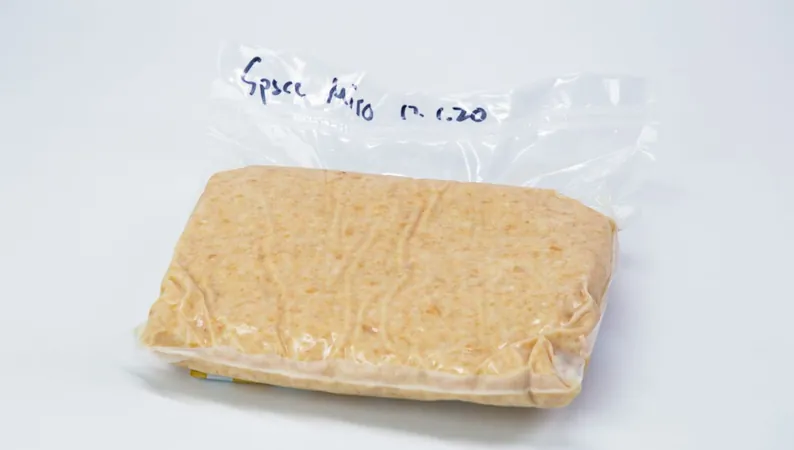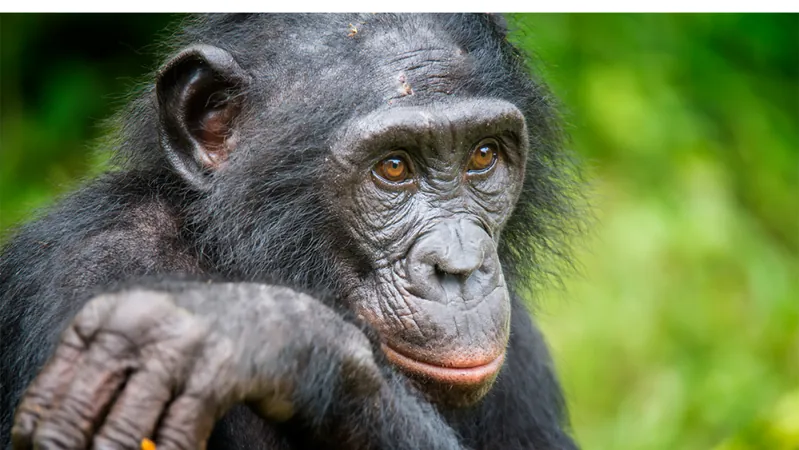
Space Miso: A Taste of the Final Frontier – What Scientists Discovered!
2025-04-04
Author: Jia
Introduction
In a groundbreaking experiment conducted in March 2020, scientists launched a small container of "miso-to-be" to the International Space Station (ISS). This unique batch of beans fermented for 30 days in the microgravity environment of space, leading to intriguing results that have foodies and space enthusiasts buzzing alike!
The Experiment
While two control samples of miso were simultaneously fermented on Earth—one in Cambridge, Massachusetts, and the other in Copenhagen, Denmark—the space-miso stood out not only in taste but also in its complex profile. Scientists reported that while the smell and taste were comparable to their earthly counterparts, the space miso developed a nuttier and more roasted flavor, which has piqued interest in the potential of extraterrestrial food production.
Insights from the Researchers
Joshua D. Evans, co-lead author of the study from the Technical University of Denmark, shared insights into the experiment, stating, “There are unique features in the low Earth orbit environment, especially microgravity and increased radiation, which can influence microbial growth and fermentation processes. Our goal was to investigate these effects.
Microbial Findings
Moreover, the results revealed significant differences in microbial communities present in fermented products from space compared to Earth. This suggests that not only does fermentation occur in the unusual conditions of space, but the types of microbes that thrive there might influence not just flavor, but also food safety and nutritional profiles—critical points to consider for future long-term human space missions.
Bioethical Considerations
Maggie Coblentz from the Massachusetts Institute of Technology, the other co-lead author, remarked, “This experiment illustrates how microbial life can adapt and thrive in space, hinting at the complexities of life beyond Earth." This raises important bioethical considerations about moving organisms from their native environments to alien worlds, opening a dialogue about the implications of interplanetary life.
Sustainable Food Systems for Space
Additional research has shown that microbial life aboard the ISS has diverged significantly from terrestrial forms, which only amplifies the importance of developing sustainable food systems for long-term space exploration. As humanity looks to establish a permanent presence in space, understanding how to cultivate, produce, and prepare food in extraterrestrial environments will be paramount.
Conclusion
Coblentz emphasized the significance of this research in the broader context, stating, “Using food as a launching point, we’re initiating critical discussions about social structures in space and the inclusion of diverse roles within scientific and engineering fields.” As we venture further into the cosmos, how we design systems and environments on other planets will profoundly influence who can access and thrive in these new worlds.
With the taste of space miso offering just a glimpse into the potential of culinary science beyond Earth, the future of food in space is as exciting as it is essential!


 Brasil (PT)
Brasil (PT)
 Canada (EN)
Canada (EN)
 Chile (ES)
Chile (ES)
 Česko (CS)
Česko (CS)
 대한민국 (KO)
대한민국 (KO)
 España (ES)
España (ES)
 France (FR)
France (FR)
 Hong Kong (EN)
Hong Kong (EN)
 Italia (IT)
Italia (IT)
 日本 (JA)
日本 (JA)
 Magyarország (HU)
Magyarország (HU)
 Norge (NO)
Norge (NO)
 Polska (PL)
Polska (PL)
 Schweiz (DE)
Schweiz (DE)
 Singapore (EN)
Singapore (EN)
 Sverige (SV)
Sverige (SV)
 Suomi (FI)
Suomi (FI)
 Türkiye (TR)
Türkiye (TR)
 الإمارات العربية المتحدة (AR)
الإمارات العربية المتحدة (AR)